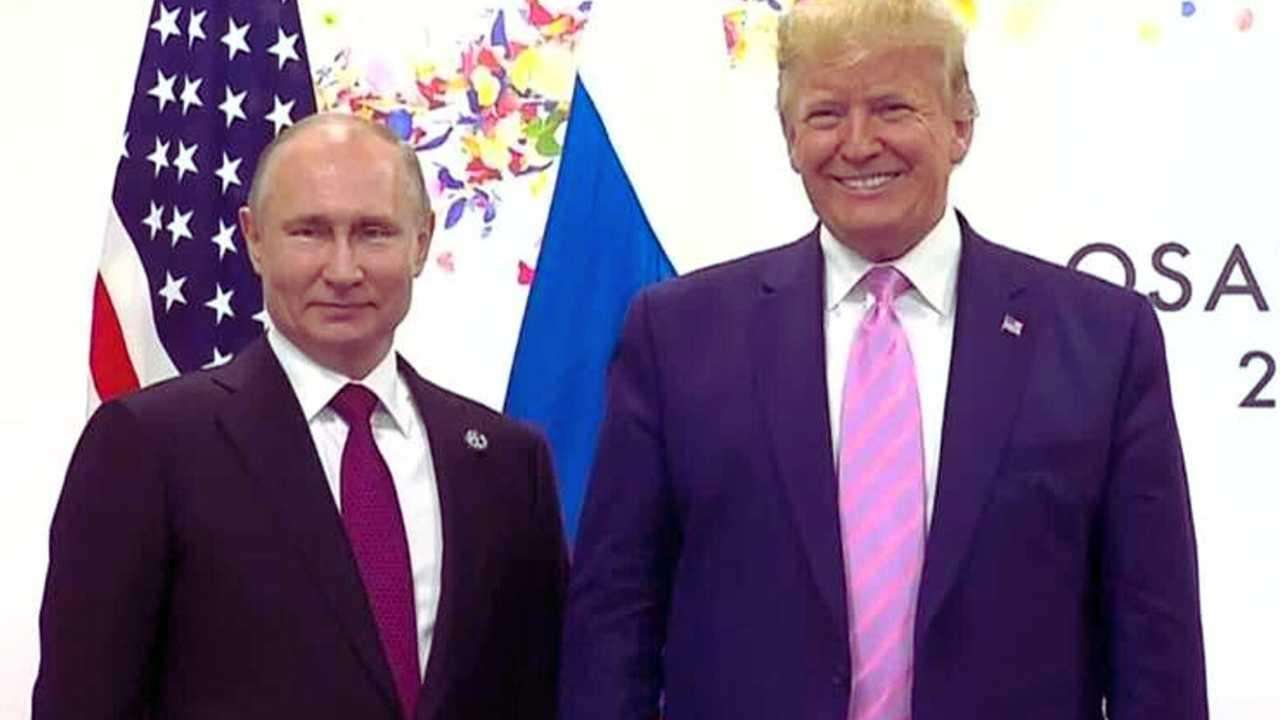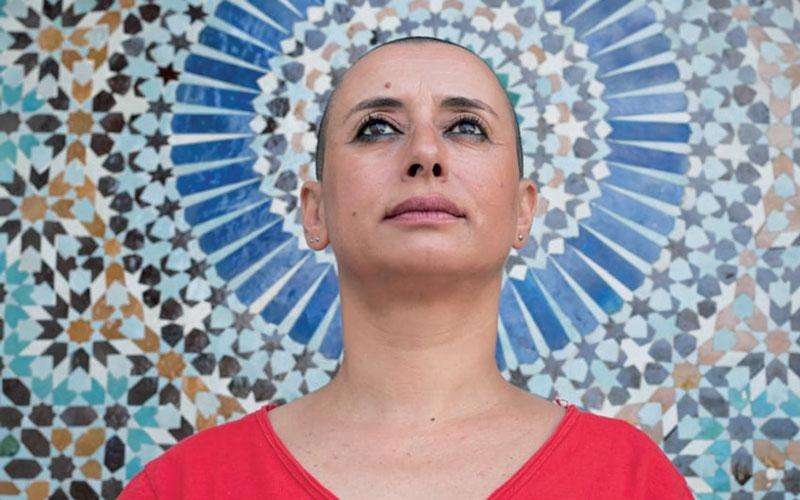[caption id="attachment_1395" align="alignright" width="499"]
 Iran's and U.S.' flags are seen printed on paper in this illustration taken January 27, 2022. REUTERS/Dado Ruvic/Illustration/File Photo
Iran's and U.S.' flags are seen printed on paper in this illustration taken January 27, 2022. REUTERS/Dado Ruvic/Illustration/File Photo[/caption]
According to people acquainted with the situation, Iran may release five American nationals who are currently in custody in exchange for the release of some Iranian prisoners from American prisons and the unfreezing of $6 billion in frozen Iranian cash in South Korea.
Iran permitted four arrested Americans to leave Tehran's Evin jail and enter house arrest as a first step in what may be a complicated series of manoeuvres, according to a lawyer for one of them. They joined a fifth American who was already under house detention.
The Iranian Americans allowed to leave the prison include businessmen Siamak Namazi, 51, and Emad Shargi, 58, as well as environmentalist Morad Tahbaz, 67, who also has British nationality, said Jared Genser, a lawyer who represents Namazi.
The identity of the fourth U.S. citizen who was allowed out of prison has not been made public, nor has that of the fifth who was already under house arrest.
Allowing the five to leave Iran, which could take weeks, would remove a major irritant between Washington and Tehran, which remain at odds on issues from the Iranian nuclear program to Tehran's support for regional Shi'ite militias.
"The move by Iran of the American hostages from Evin Prison to an expected house arrest is an important development," Genser said in a statement. "While I hope this will be the first step to their ultimate release, this is at best the beginning of the end and nothing more."
"We have received confirmation that Iran has released from prison five Americans who were unjustly detained and has placed them on house arrest," National Security Council Spokesperson Adrienne Watson said in a statement, saying the five should never have been detained in the first place.
"We will not rest until they are all back home in the United States," she added, saying that the White House would have little more to say because "negotiations for their eventual release remain ongoing and are delicate."
The Iranian foreign ministry did not immediately respond to a request for comment.
Iranian Americans, whose U.S. citizenship is not recognized by Tehran, are often pawns between the two nations.
The five will be allowed to leave Iran after $6 billion of Iranian funds in South Korea are unfrozen, a source told Reuters, adding that under a deal reached between Tehran and Washington several Iranians in U.S. jails would be released.
A second source familiar with the indirect U.S.-Iranian talks said it could be weeks before the U.S. citizens could leave Iran, saying September was a possible time frame. He confirmed unfreezing the funds may be part of the deal.
However, he stressed that the funds, if transferred from the South Korean banks to another financial institution, would go from one restricted account to another and could only be used for humanitarian purposes such as buying food or medicine.
Any transfer could draw Republican criticism that President Joe Biden, a Democrat, had effectively paid a ransom for the U.S. citizens and that Iran using that money for humanitarian purposes could free up funds for its nuclear program or to support militias in nations such as Iraq, Lebanon and Yemen.
Namazi, who in 2016 was convicted of espionage-related charges the United States has rejected as baseless, has been detained by Iran for more than seven years. His father, Baquer, was allowed to leave Iran in October for medical treatment after being detained on similar charges also rejected by Washington.
Tahbaz was arrested in 2018 and sentenced to 10 years in prison for "assembly and collusion against Iran's national security" and working for the United States as a spy. Shargi was convicted of espionage in 2020 and also sentenced to 10 years.
Source: Reuters
 Iran's and U.S.' flags are seen printed on paper in this illustration taken January 27, 2022. REUTERS/Dado Ruvic/Illustration/File Photo[/caption]
According to people acquainted with the situation, Iran may release five American nationals who are currently in custody in exchange for the release of some Iranian prisoners from American prisons and the unfreezing of $6 billion in frozen Iranian cash in South Korea.
Iran permitted four arrested Americans to leave Tehran's Evin jail and enter house arrest as a first step in what may be a complicated series of manoeuvres, according to a lawyer for one of them. They joined a fifth American who was already under house detention.
The Iranian Americans allowed to leave the prison include businessmen Siamak Namazi, 51, and Emad Shargi, 58, as well as environmentalist Morad Tahbaz, 67, who also has British nationality, said Jared Genser, a lawyer who represents Namazi.
The identity of the fourth U.S. citizen who was allowed out of prison has not been made public, nor has that of the fifth who was already under house arrest.
Allowing the five to leave Iran, which could take weeks, would remove a major irritant between Washington and Tehran, which remain at odds on issues from the Iranian nuclear program to Tehran's support for regional Shi'ite militias.
"The move by Iran of the American hostages from Evin Prison to an expected house arrest is an important development," Genser said in a statement. "While I hope this will be the first step to their ultimate release, this is at best the beginning of the end and nothing more."
"We have received confirmation that Iran has released from prison five Americans who were unjustly detained and has placed them on house arrest," National Security Council Spokesperson Adrienne Watson said in a statement, saying the five should never have been detained in the first place.
"We will not rest until they are all back home in the United States," she added, saying that the White House would have little more to say because "negotiations for their eventual release remain ongoing and are delicate."
The Iranian foreign ministry did not immediately respond to a request for comment.
Iranian Americans, whose U.S. citizenship is not recognized by Tehran, are often pawns between the two nations.
The five will be allowed to leave Iran after $6 billion of Iranian funds in South Korea are unfrozen, a source told Reuters, adding that under a deal reached between Tehran and Washington several Iranians in U.S. jails would be released.
A second source familiar with the indirect U.S.-Iranian talks said it could be weeks before the U.S. citizens could leave Iran, saying September was a possible time frame. He confirmed unfreezing the funds may be part of the deal.
However, he stressed that the funds, if transferred from the South Korean banks to another financial institution, would go from one restricted account to another and could only be used for humanitarian purposes such as buying food or medicine.
Any transfer could draw Republican criticism that President Joe Biden, a Democrat, had effectively paid a ransom for the U.S. citizens and that Iran using that money for humanitarian purposes could free up funds for its nuclear program or to support militias in nations such as Iraq, Lebanon and Yemen.
Namazi, who in 2016 was convicted of espionage-related charges the United States has rejected as baseless, has been detained by Iran for more than seven years. His father, Baquer, was allowed to leave Iran in October for medical treatment after being detained on similar charges also rejected by Washington.
Tahbaz was arrested in 2018 and sentenced to 10 years in prison for "assembly and collusion against Iran's national security" and working for the United States as a spy. Shargi was convicted of espionage in 2020 and also sentenced to 10 years. Source: Reuters
Iran's and U.S.' flags are seen printed on paper in this illustration taken January 27, 2022. REUTERS/Dado Ruvic/Illustration/File Photo[/caption]
According to people acquainted with the situation, Iran may release five American nationals who are currently in custody in exchange for the release of some Iranian prisoners from American prisons and the unfreezing of $6 billion in frozen Iranian cash in South Korea.
Iran permitted four arrested Americans to leave Tehran's Evin jail and enter house arrest as a first step in what may be a complicated series of manoeuvres, according to a lawyer for one of them. They joined a fifth American who was already under house detention.
The Iranian Americans allowed to leave the prison include businessmen Siamak Namazi, 51, and Emad Shargi, 58, as well as environmentalist Morad Tahbaz, 67, who also has British nationality, said Jared Genser, a lawyer who represents Namazi.
The identity of the fourth U.S. citizen who was allowed out of prison has not been made public, nor has that of the fifth who was already under house arrest.
Allowing the five to leave Iran, which could take weeks, would remove a major irritant between Washington and Tehran, which remain at odds on issues from the Iranian nuclear program to Tehran's support for regional Shi'ite militias.
"The move by Iran of the American hostages from Evin Prison to an expected house arrest is an important development," Genser said in a statement. "While I hope this will be the first step to their ultimate release, this is at best the beginning of the end and nothing more."
"We have received confirmation that Iran has released from prison five Americans who were unjustly detained and has placed them on house arrest," National Security Council Spokesperson Adrienne Watson said in a statement, saying the five should never have been detained in the first place.
"We will not rest until they are all back home in the United States," she added, saying that the White House would have little more to say because "negotiations for their eventual release remain ongoing and are delicate."
The Iranian foreign ministry did not immediately respond to a request for comment.
Iranian Americans, whose U.S. citizenship is not recognized by Tehran, are often pawns between the two nations.
The five will be allowed to leave Iran after $6 billion of Iranian funds in South Korea are unfrozen, a source told Reuters, adding that under a deal reached between Tehran and Washington several Iranians in U.S. jails would be released.
A second source familiar with the indirect U.S.-Iranian talks said it could be weeks before the U.S. citizens could leave Iran, saying September was a possible time frame. He confirmed unfreezing the funds may be part of the deal.
However, he stressed that the funds, if transferred from the South Korean banks to another financial institution, would go from one restricted account to another and could only be used for humanitarian purposes such as buying food or medicine.
Any transfer could draw Republican criticism that President Joe Biden, a Democrat, had effectively paid a ransom for the U.S. citizens and that Iran using that money for humanitarian purposes could free up funds for its nuclear program or to support militias in nations such as Iraq, Lebanon and Yemen.
Namazi, who in 2016 was convicted of espionage-related charges the United States has rejected as baseless, has been detained by Iran for more than seven years. His father, Baquer, was allowed to leave Iran in October for medical treatment after being detained on similar charges also rejected by Washington.
Tahbaz was arrested in 2018 and sentenced to 10 years in prison for "assembly and collusion against Iran's national security" and working for the United States as a spy. Shargi was convicted of espionage in 2020 and also sentenced to 10 years. Source: Reuters







.svg)

